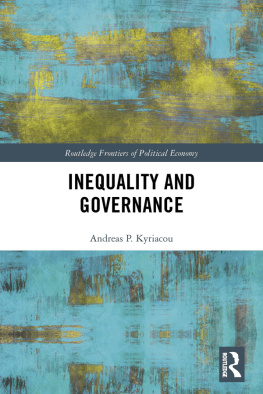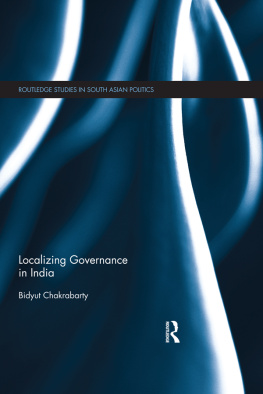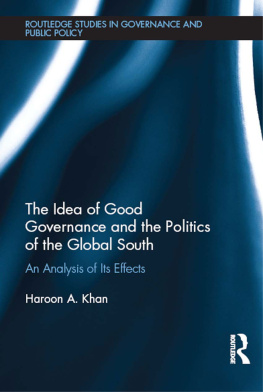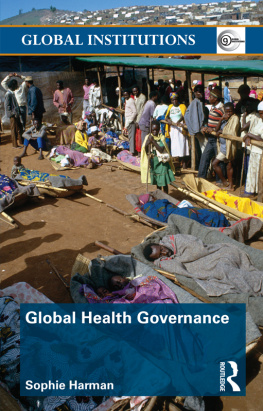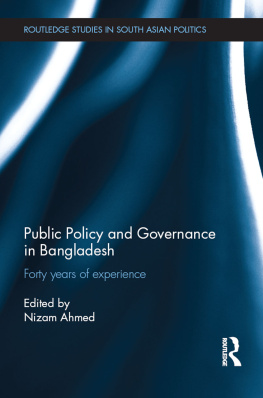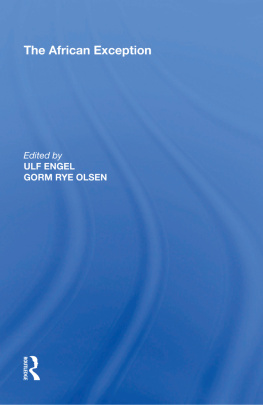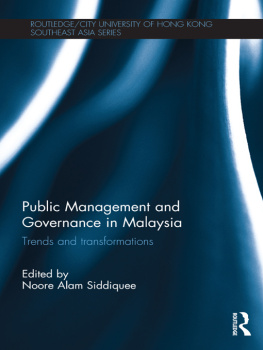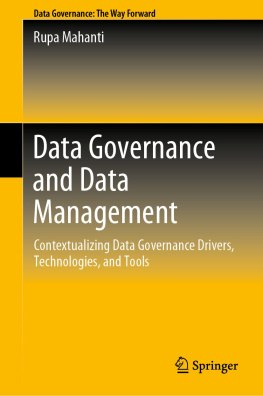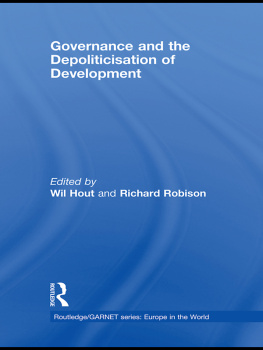Inequality and Governance
Governance matters for social welfare. Better governed countries are richer, happier and have fewer social and environmental problems. Good governance implies that public sector agents act impartially. It manifests itself in the form of equality before the law, an independent and professional public administration and the control of corruption.
This book considers how economic inequality both interpersonal and interethnic can affect the quality of governance. To this end, it brings together insights from three different perspectives. First, a long-run historical one that exploits anthropological data on pre-industrial societies. Second, based on experimental work conducted by social psychologists and behavioural economists. Third, through cross-country empirical analysis drawn from a large sample of contemporary societies.
The long-run perspective relates the inequality-governance relationship to societal responses in the face of uncertainty responses that persist today in the guise of cultural traits that vary across countries. The experimental evidence deepens our understanding of human behaviour in unequal settings and in different governance contexts. Together, the long-run perspective and the experimental evidence help inform the cross-country analysis of the impact of economic inequality on governance. This analysis suggests the importance of both economic inequality and culture for the quality of governance and yields several policy implications.
Andreas P. Kyriacou is Professor of Economics at the Universitat de Girona (Spain). Over the years, he has worked on a range of research topics mostly from the perspective of Institutional Economics. These include federalism and decentralisation, non-economic motives driving individual behaviour and, more recently, the causes and consequences of government quality.
Routledge Frontiers of Political Economy
257 The Economics of Military Spending
A Marxist Perspective
Adem Yavuz Elveren
258 Political Pluralism, Disagreement and Justice
The Case for Polycentric Democracy
Julian F. Mller
259 Nonviolent Political Economy
Theory and Applications
Edited by Freddy Cante and Wanda Tatiana Torres
260 Cognitive Capitalism, Welfare and Labour
The Commonfare Hypothesis
Andrea Fumagalli, Alfonso Giuliani, Stefano Lucarelli and Carlo Vercellone
261 Political Economy for Human Rights
Manuel Couret Branco
262 Alternative Approaches to Economic Theory
Complexity, Post Keynesian and Ecological Economics
Edited by Victor A. Beker
263 The Dark Side of Nudges
Maria Alejandra Caporale Madi
264 Inequality and Governance
Andreas P. Kyriacou
For more information about this series, please visit: www.routledge.com/books/series/SE0345
First published 2020
by Routledge
2 Park Square, Milton Park, Abingdon, Oxon OX14 4RN
and by Routledge
52 Vanderbilt Avenue, New York, NY 10017
Routledge is an imprint of the Taylor & Francis Group, an informa business
2020 Andreas P. Kyriacou
The right of Andreas P. Kyriacou to be identified as author of this work has been asserted by him in accordance with sections 77 and 78 of the Copyright, Designs and Patents Act 1988.
All rights reserved. No part of this book may be reprinted or reproduced or utilised in any form or by any electronic, mechanical, or other means, now known or hereafter invented, including photocopying and recording, or in any information storage or retrieval system, without permission in writing from the publishers.
Trademark notice: Product or corporate names may be trademarks or registered trademarks, and are used only for identification and explanation without intent to infringe.
British Library Cataloguing-in-Publication Data
A catalogue record for this book is available from the British Library
Library of Congress Cataloging-in-Publication Data
A catalog record has been requested for this book
ISBN: 978-1-138-69050-9 (hbk)
ISBN: 978-1-315-53691-0 (ebk)
Typeset in Galliard
by Wearset Ltd, Boldon, Tyne and Wear
For Arnau and Nico
Contents
Id like to thank the staff at Routledge, specifically Andy Humphries, Anna Cuthbert and Laura Johnson, for proposing and shepherding through this book. Several people were kind enough to invite me for a short research stay, thus giving me quality time to think about the issues at hand: David Cameron and Dwayne Benjamin of the School of Public Policy and Governance at the University of Toronto, Niamh Hardiman of the Geary Institute of Public Policy at University College Dublin, and Alexandra Sandmark as well as Oisn Plumb of the Centre for Nordic Studies at the University of Highlands and Islands at Orkney. Thanks to Llus Planas for reading through the whole manuscript and pointing out errors and potential improvements. Thanks also to Pedro Trivin for all his help with STATA. Finally, I would like to thank my family for their patience and support, especially during the summer of 2018.
1
Introduction
Economic inequality has been on the rise around the world over the last four decades. Facundo Alvaredo et al. (2018) show that income inequality has increased in almost all world regions since 1980, although at different speeds. The rising trend of income inequality has been attributed to a range of factors (for a summary, see Anthony Atkinson [2015] and Franois Bourguignon [2017]). In developed countries, these include technological change that is biased in favour of high-skilled workers, increased competition from countries with lower wages for unskilled workers, assortative mating, whereby individuals form relationships with people with similar incomes and, finally, the rise of single parent households. In developing countries, it is mostly seen as the result of changes in the sectoral composition of the economy due to economic development in line with Simon Kuznetss (1955) seminal argument regarding the shift from agriculture to industry. The level of economic development also partly explains why economic inequality varies so much across countries. Based on the average value of the Gini index of disposable income over the period 1996 to 2016 a measure that I will fully explain in
Large economic inequalities are bad news for a range of social, political and economic objectives. Kate Pickett and Richard Wilkinson (2009) relate income inequality across developed countries and within the United States to a range of health and social problems such as, life expectancy and infant mortality, mental illness and drug use, obesity, child well-being (including experience with conflict), academic performance, teenage births, homicides and imprisonment rates (see Wilkinson and Pickett [2017], for a recent survey of associated work). These authors identify increasing anxiety due to the greater salience of status in more unequal settings as a fundamental driver of many of these problems. Status, relative or positional concerns also help explain empirical evidence showing that inequality is associated with lower happiness levels in Western countries (for surveys, see Ada Ferrer-i-Carbonell and Xavier Ramos [2014] and Andrew Clark and Conchita DAmbrosio [2015]).
Economic inequality can also affect democratisation and democratic political engagement. High levels of economic inequality may lead economic elites to oppose democracy because they are fearful of the redistributive pressures that are expected to emerge in the normal course of democratic politics (Carles Boix [2003], Daron Acemoglu and James Robinson [2006]). Within developed democracies, economic inequality may lead to unequal political participation. Drawing on a sample of industrialised democracies, Frederick Solt (2008) shows that higher levels of economic inequality reduce interest in politics, the frequency of political discussion and participation in elections of all but the wealthiest citizens. According to this author, this vindicates the relative power theory of political engagement, which holds that wealthier people can apply their superior resources to set the political agenda leaving poorer individuals to feel powerless and, as a result, to opt out of politics altogether (see, originally, Elmer Schattschneider [1960]). To the extent that poorer citizens are underrepresented when political priorities are being set, this can potentially translate into policies that are biased in favour of wealthier citizens setting in place a negative feedback loop between economic and political inequality (see Solt [2010] and Aina Gallego [2015]). In the words of Joseph Stiglitz (2012) writing on democracy in the United States, the median voter is richer than the median American. We have a

